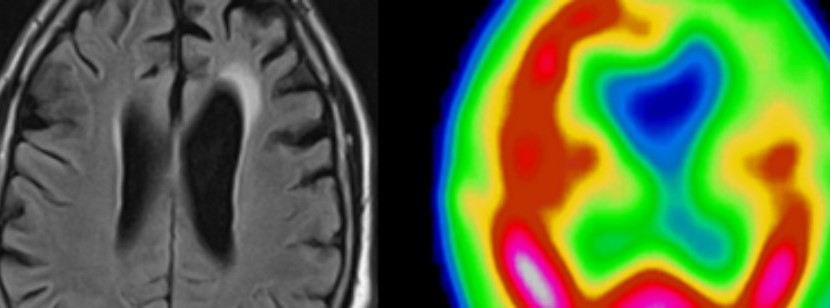Isabelle Le Ber, in Pr Alexis Brice’s team from the Brain and Spine Institute, highlighted mutations in a new gene (SQSTM1) responsible for familial cases of frontotemporal dementia (FTD). FTD is a group of disorders resulting from the progressive degeneration of the frontal and temporal lobes of the brain. Related to Alzheimer’s disease, FTD represent a major cause of dementia in patients younger than age 65. Those diseases induce progressive changes in behavior and language without affecting memory skills at the onset of the disease. Numerous patients present a familial history suggesting genetic transmission of mutations. Up to this day, three main genes could explain the development of 40-50% of familial FTD. First mutations in SQSTM1 were identified several years ago in familial cases of Paget disease of bones, and more recently, in rare form of amyotrophic lateral sclerosis. Isabelle Le Ber, in Pr Alexis Brice’s team proved for the first time, a direct role of this new gene SQSTM1 in genetic forms of FTD.
This discovery explains 4% of FTD and rise new potential in our understanding of the physiopathological mechanisms involved in these diseases. Indeed, the SQSTM1 gene is coding for a protein (p62/sequestosome 1) implicated in many cellular process. In particular, p62 has an important role in proteins degradation, essential mechanism to allow cells a good functioning. Yet, recent studies have shown that p62 binds to TDP-43, a protein showing abnormal aggregation in neurons of some patients. P62/sequestosome 1 could thus be directly or indirectly implicated in the process of degradation of TDP-43 proteins, making this way, a physiopathological link between these two proteins.
Nowadays, there is an ongoing study about functional consequences of SQSTM1 mutations in an in vitro model and in an in vivo zebrafish model in association with Dr Edor Kabashi in the Brain and Spine Institute.
This research has been supported by WP Alzheimer fundings from IHU (IE position, Anne De Septenville).







